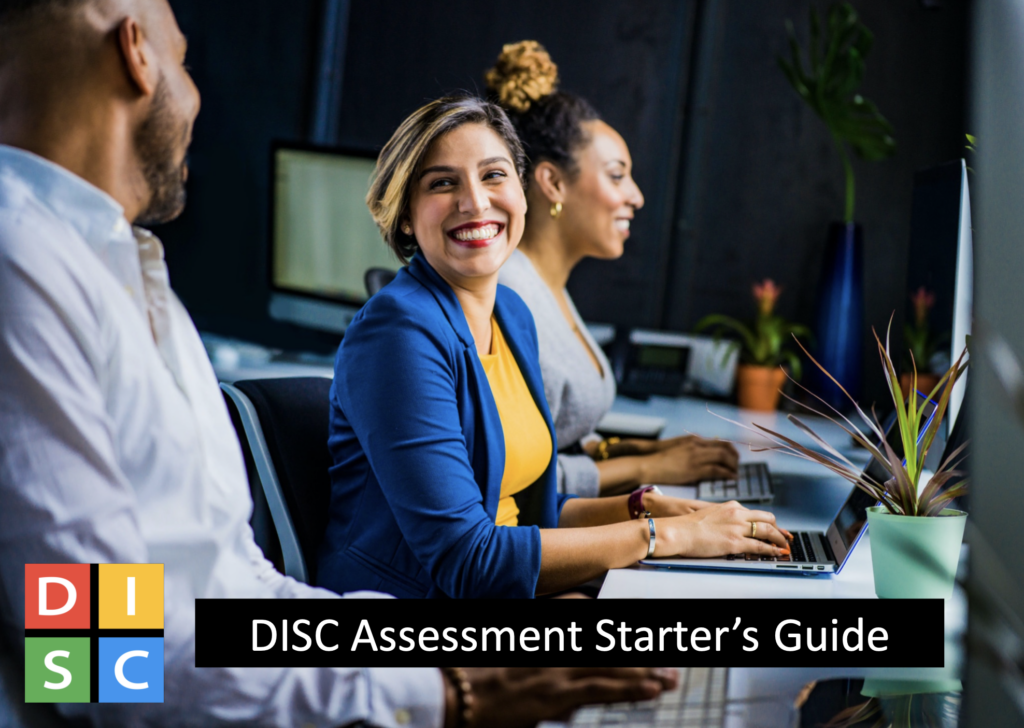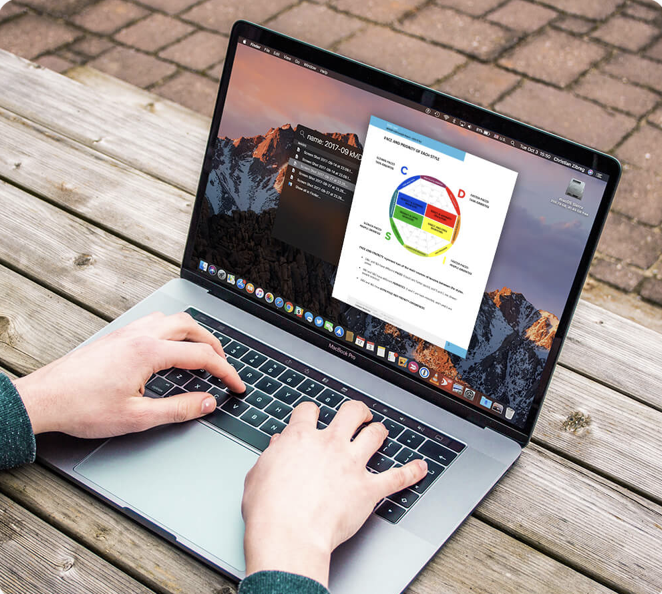DISC Assessment Starter's Guide
Learn how to use DISC Assessments to improve communication, teamwork, and leadership skills with our DISC Assessment Starter’s Guide!

What is DISC?
Have you noticed that there are certain people at work or in your life with whom you share an easy mutual understanding? You seem to share an unspoken agreement on how to interact regardless of how long you may have known them.
Alternatively, can you think of someone who felt like there was a barrier preventing you from understanding each other even though you may speak the same language, have grown up in the same region, or have known them for a long time?
Our personality influences the way we behave and communicate. While humans are incredibly complex, DISC assessments offer a simple model to help us understand the motivations behind our behaviors (whether using DISC for Leaders, a Personal DISC Profile, or DISC for Teams).
DISC measures four unique personality types:

Dominance
Dominance Style (D Personality Type) represents individuals who are driven, assertive, and don't shy away from a challenge.

Influence
Influence Style (I Personality Type) represents individuals who are fast paced, outgoing, enthusiastic and optimistic. They are often friendly and can be the life of the party!

Steadiness
Steadiness Style (S Personality Type) represents individuals who are calm and try to maintain a stable environment.

Conscientious
Conscientious Style (C Personality Type) represents individuals who are accurate, reserved, and cautious.
Is it possible to posses all four DISC Personality Types?
The DISC Assessment identifies a person’s primary style. However, the tool isn’t designed to stick anyone in a box.
When DISC was originally theorized by William Moulton Marston, he used the imagery of a color wheel to help describe his model. In his book, The Emotions of Normal People, Marston wrote that our primary color shines brightly, but it is connected to all of the other colors.
Today, we know that there are at least 12 primary DISC Personality Types. When you receive your profile, you will see your primary style, and also how much of the other Styles are incorporated in your overall profile. Your personality, while identifiable through DISC, is unique to you.
Is DISC similar to Myers Briggs or the Big Five Personality assessment?
DISC Assessments measure similar traits that are incorporated within the Big Five Personality assessment and the Myers-Briggs (MBTI) assessment. However, how these traits are measured and described is unique to each assessment alone.
DISC Compared to Myers-Briggs (MBTI)
The following DISC and Myers-Briggs traits/personality types are strongly correlated:
- The Introverted / Extroverted scale on MBTI is strongly correlated to the C-Personality Type and the I-Personality Type on the DISC Model
- The Thinking / Feeling scale is strongly correlated to the questioning / accepting scale within the DISC Model.
DISC Compared to the Big Five Personality Model (Five-Factor Model)
Similar to Myers-Briggs (MBTI), the Big Five Personality model and DISC are strongly correlated with the following traits:
- Big Five’s Extraversion scale strongly correlates with the I and C Personality types.
- Big Five’s Agreeableness scale strongly correlates to the DISC Model’s questioning / accepting scale.
How to Take a DISC Assessment (start one for free!)

When William Moulton Marston created the DISC model, he didn’t create an assessment. Today, there are many DISC Assessment versions because the model is in the public domain.
We believe in the power of this tool and we are pleased to offer a free version of DISC so everyone can learn their style.
Is a DISC Personality Test Accurate?
DISC Basic assessments offer the only version of DISC that a third-party research agency has researched for validity and reliability. You can trust that you will receive an accurate profile if you take the time to answer the questions seriously and honestly.
Like any self-assessment, if you choose answers that don’t represent who you are, you won’t receive an accurate profile of your style.
Can you fail a DISC Assessment?
DISC doesn’t offer a pass or fail report. There are no bad or good DISC styles. Your personality has strengths and challenges, just like any other personality type.
DISC Basic is validated for hiring, and employers may feel your personality type doesn’t match the needs of their position. However, that doesn’t mean you’ve failed the DISC Assessment.
What is the most common DISC personality type?
The C Personality Type is the most common DISC Style across the world.
This style does change from region to region, but in most regions of the world, individuals identify most with the C-Personality Type.
Need help getting started?
Let us know what questions you have about this tool!
